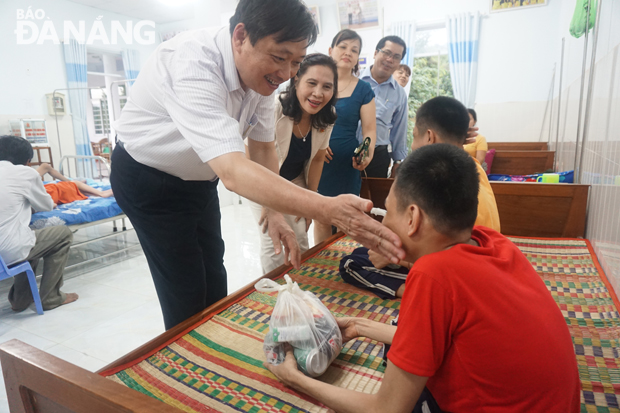Over 6.46 trillion VND for social welfare programme
On Tuesday, Da Nang People’s Committee Vice Chairman Dang Viet Dung met with representatives from local relevant agencies to discuss the implementation of the city's social welfare programme over the 2016 - 2020 period.
 |
| Vice Chairman Dung (left) visiting children at Shelter No 3 of the city’s Care Centre for AO Victims and Disadvantaged Children in Hoa Vang District |
Under the programme, the focus is on promoting the development of the education and training, construction, health, information and communications, social insurance, agriculture and rural development, and transport sectors.
Also, importance is being attached to supporting local work forces and those who have made great efforts to society, as well as ensuring the city’s sustainable development.
The 5-year programme is expected to cost a total of over 6.46 trillion VND. Of this figure, 2.8 trillion VND will come from the central government's budget, over 2.36 trillion VND from the city’s budget, whilst the remainder will be from public donations.
Vice Chairman Dung urged the municipal Department of Education and Training to ensure that 100% of the city’s primary school pupils will study for 2 sessions per day from the 2017 - 2018 academic year, and that all of them will be able to swim by 2020.
The city leader stressed the need for the local healthcare sector to increase the number of patient beds at local hospitals to over 9,000 in total in order to reduce the current patient overload.
Mr Dung also asked the municipal Department of Labour, War Invalids and Social Affairs to reconsider the requirements for low-income earners, government employees, and those who have given great service to the national revolution, to rent local state-owned apartments. The intention is to deal with some problems which have arisen with the management and allocation of such apartments, and to ensure that all local residents have their own accommodation.